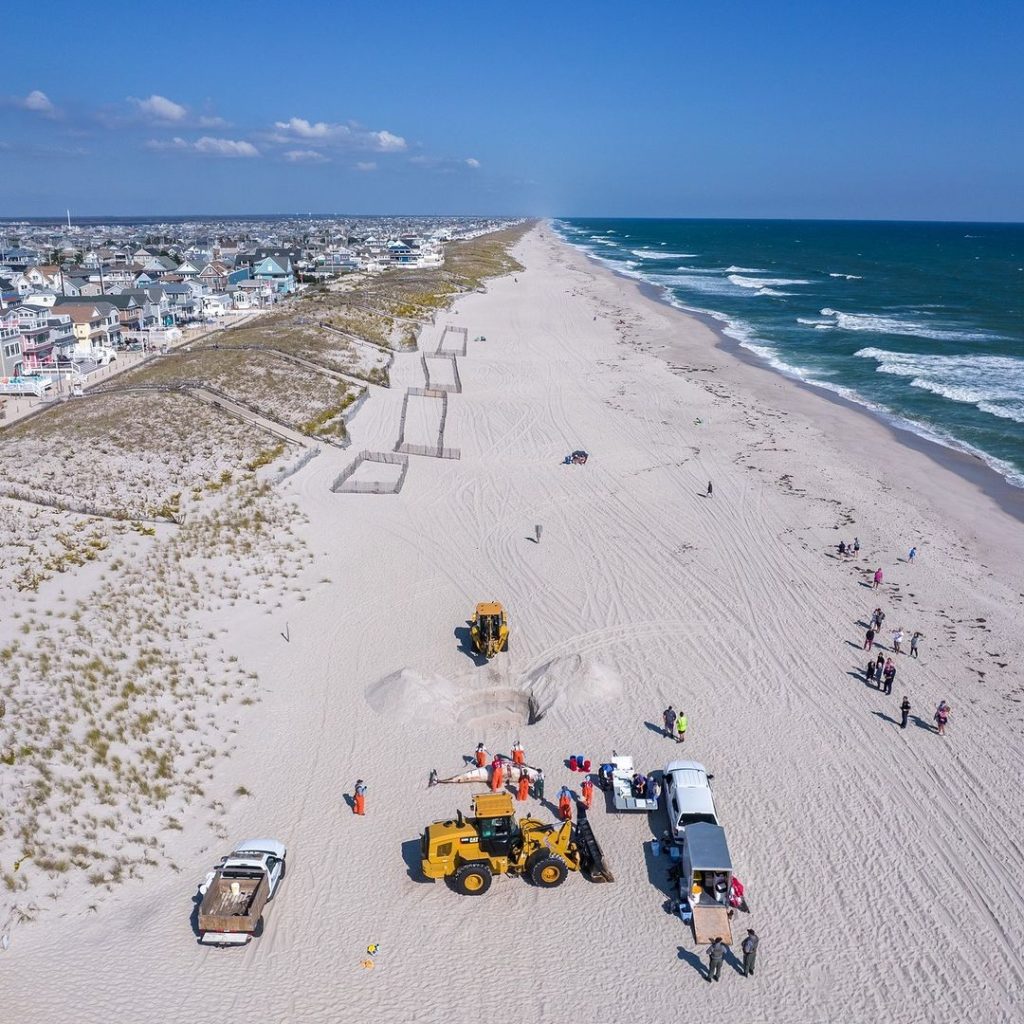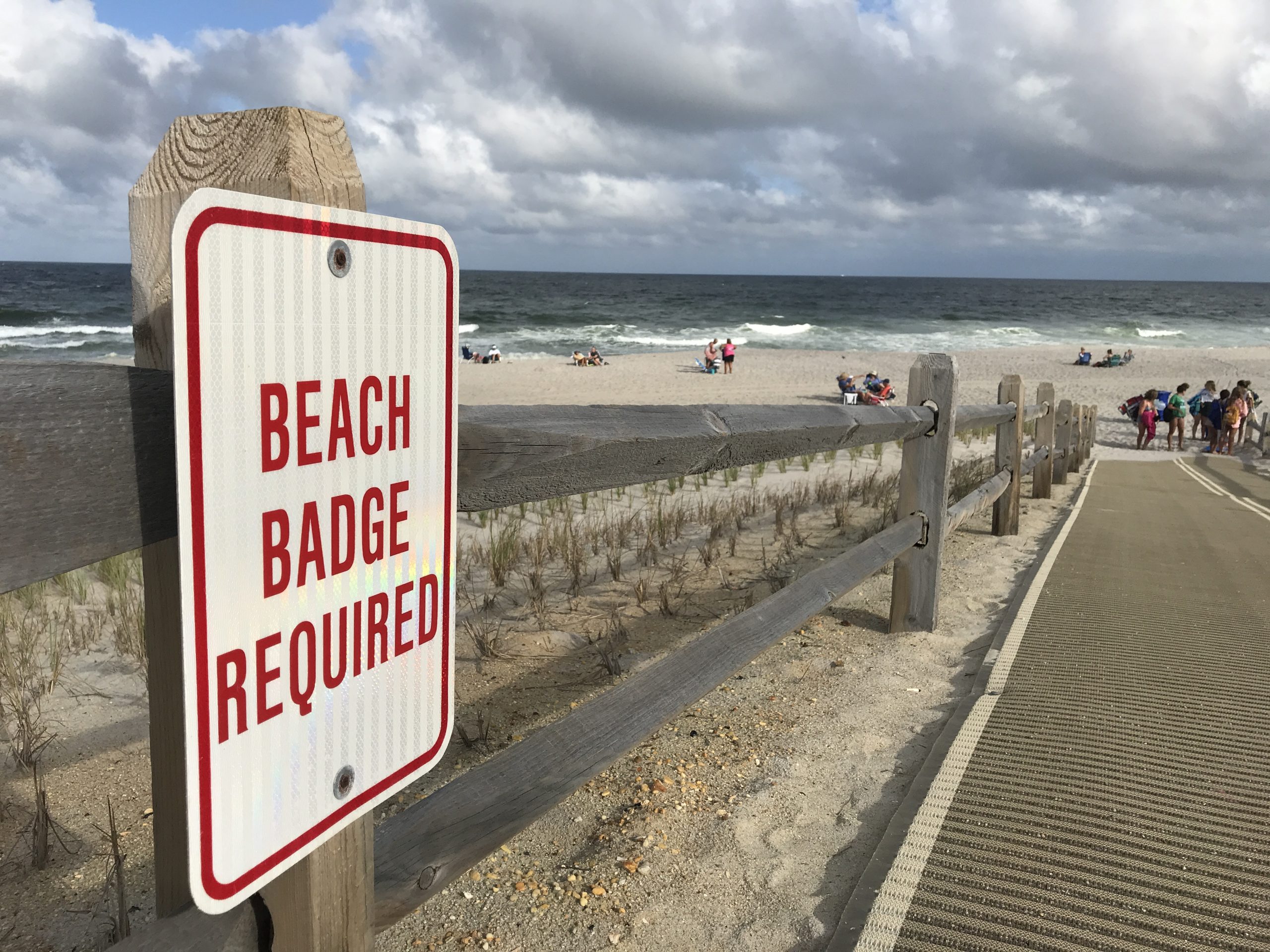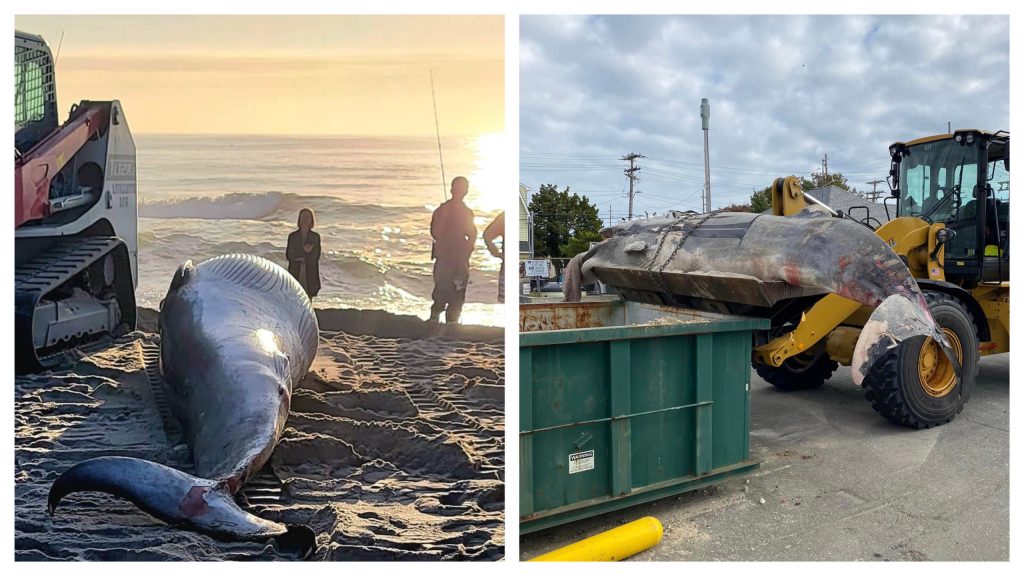
A minke whale washed up in Lavallette, N.J., later taken to a public works yard, Oct. 4, 2024. (Credit: Janice Fix/ Lavallette Boardwalk/ Facebook)
Lavallette officials this week unanimously voted to adopt a formal policy that will guide borough staff if and when a large marine mammal, such as a whale or dolphin, washed up on shore.
The search for a formalized protocol came a month after a deceased whale came ashore near Trenton Avenue. The animal was identified as a Minke whale measuring 10 to 12 feet in length, and following a necropsy performed by researchers, was buried several feet below the sand. At least one resident, at the following borough council meeting, expressed surprise at the fact that the whale was buried on the beach, despite it being a common practice up and down the coast, leading officials to reach out to the Marine Mammal Stranding Center to determine a permanent policy for dealing with such situations.
“If it washes up here, it’s ours,” said Mayor Walter LaCicero.
In some New Jersey counties, public landfills will accept the carcasses of large animals and marine life, however the Ocean County landfill does not. Large animals such as whales, dolphins or sea turtles are often transported via truck to a town’s public works yard, where the necropsy is performed – the protocol that was carried out in October in Lavallette. But municipal governments are largely on their own when it comes to determining where to permanently dispose of the remains. In the vast majority of cases, they are brought back to the beach and buried under several feet of sand to naturally decompose.
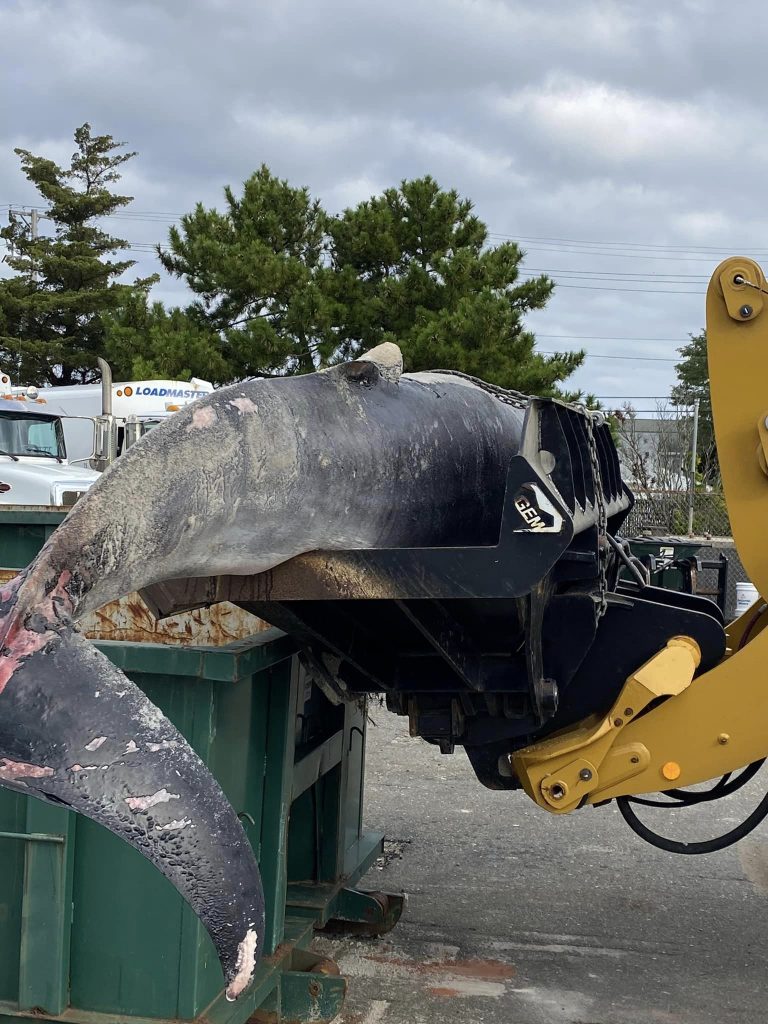
A minke whale washed up in Lavallette, N.J., later taken to a public works yard, Oct. 4, 2024. (Credit: Janice Fix/ Lavallette Boardwalk/ Facebook)
The protocol adopted this week is part of a partnership with the Brigantine-based Marine Mammal Stranding Center, which deploys technicians and veterinarians to stranding sites up and down the coast. The center arranges for necropsies to be performed when necessary before turning the carcass back over the local government.
Moving forward, the policy calls for the borough’s Superintendent of Public Works, or someone he designates, to determine the best location for disposal of the remains after they are released by the stranding center. The location will be determined by numerous factors, including the time of year, day of the week, the overall condition of each beach, and whether there is a lack of alternative means to dispose of the carcass. Whenever it is practical to do so, a “Notice of Disposal” will be posted on the town’s website to keep residents informed.
The ashing up of whales, dolphins, all marine mammal species and sea turtles must first be reported to the stranding center before borough staff can work on disposal, in accordance with both state and federal policies for dealing with those species. No marine animal, whether living or deceased, is allowed to be pushed back into the water until a review by officials, and the public is obligated to keep a 50-foot buffer around it. Historically, the stranding center removes small marine species from the beach to conduct necropsies, however large species such as whales may sometimes have a necropsy performed on the beach itself in order to avoid both the logistical effort and the public spectacle of carting the remains of a very large animal across town.
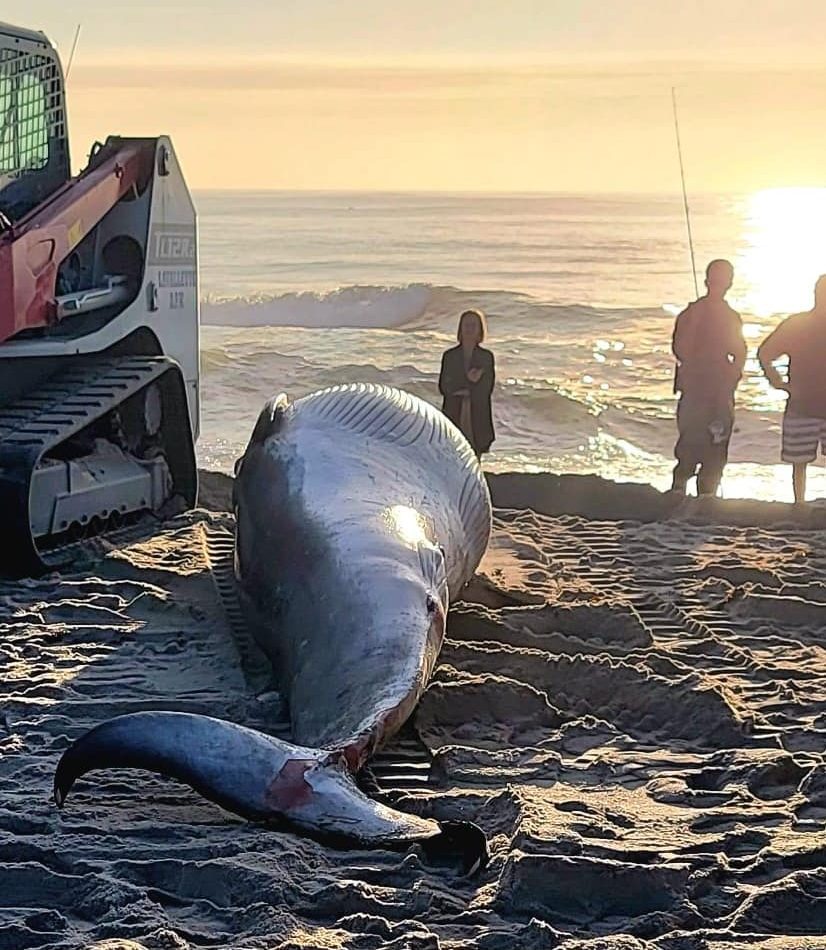
A minke whale washed up in Lavallette, N.J., later taken to a public works yard, Oct. 4, 2024. (Credit: Janice Fix/ Lavallette Boardwalk/ Facebook)
LaCicero said one of the reasons for keeping people away from stranded marine mammals – beyond potentially hurting the creature if it is still alive – is to prevent bacteria on the body of the animal from spreading to beachgoers that could result in a sickness.
A rash of incidents involving deceased marine mammals washing up on local beaches has caused great concern among many residents in recent years, with many calling for studies to be conducted as to whether soundings and other activity emanating from the development of offshore wind turbines is contributing to the phenomenon. New Jersey officials have brushed off the concerns, stating there is little chance marine mammals can directly “capture” the sound waves from offshore energy generation activities or research, however incoming President Donald Trump has publicly questioned marine mammal safety when addressing supporters at rallies in New Jersey. U.S. Rep. Chris Smith has called for a moratorium on offshore turbine development until a more detailed study on the matter could be conducted, which may be more likely to occur given the impending change in presidential administrations.

Advertisement

Police, Fire & Courts
Police Investigating Possible Shots Fired in Seaside Heights

Police, Fire & Courts
Cops: Juvenile Arrested After 118mph Joy Ride in Seaside Heights, Toms River Kills 2

Seaside Heights & Seaside Park
Seaside Heights Mourns Passing of Boardwalk Legend, Still Working Into His 90s

